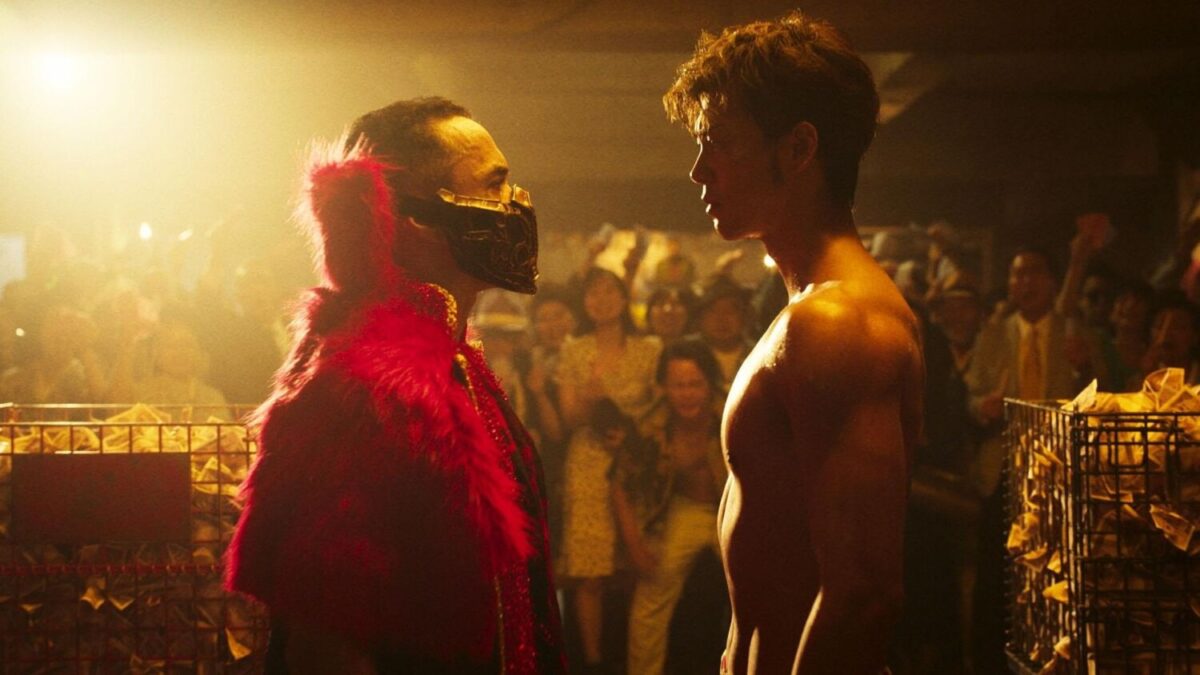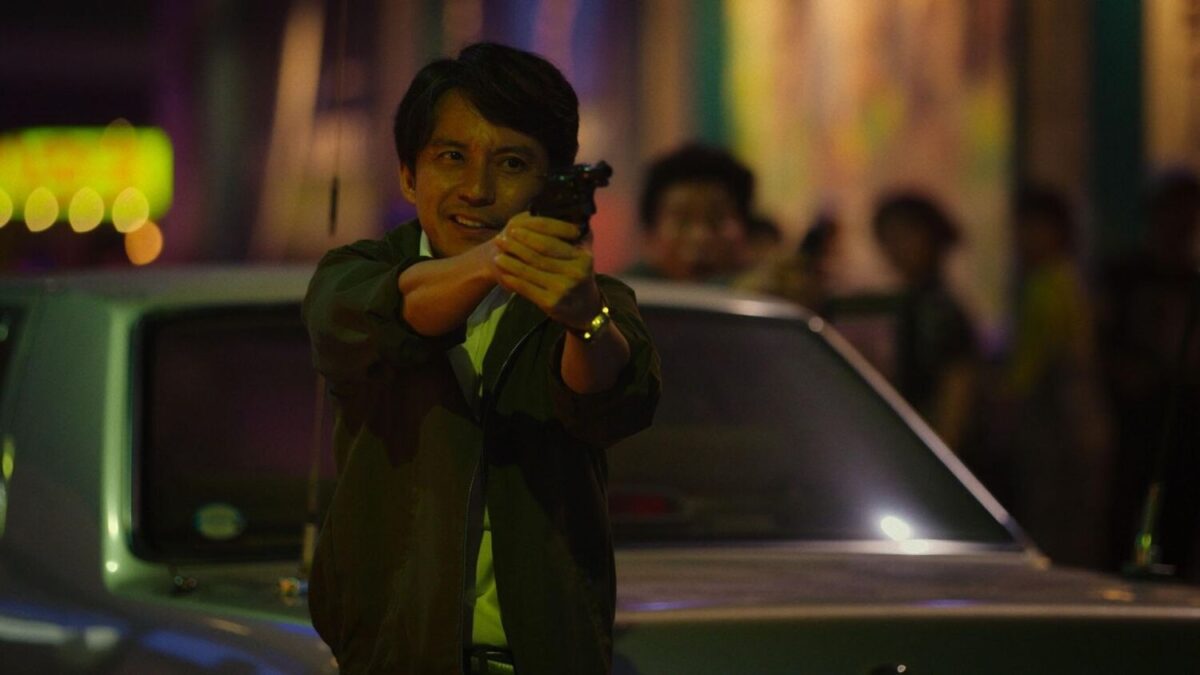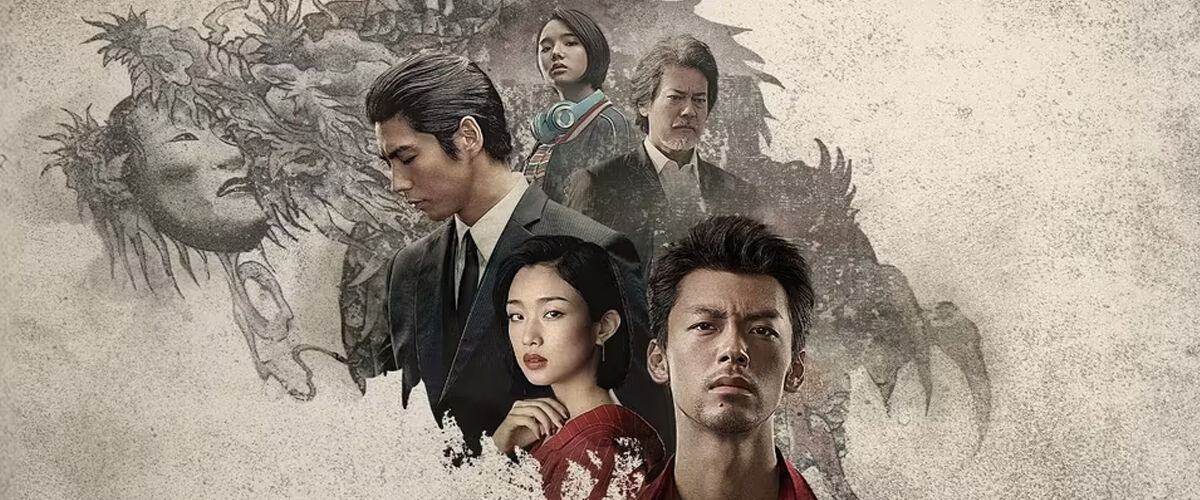Tonal mishmashes don’t always work, but that’s hardly an issue for Sega’s Yakuza / Like a Dragon games. The beat-em-up series is rooted in emotional drama and strong characterisation, even if it may not appear as such on the surface. With the over-the-top, comical flair for mini-games, quirky personalities, and amusing side quests, it’s easy to dismiss the experience as a goofy, playful time – until the angst comes crashing in hard.

This balance between humour and emotional weight remains one of the franchise’s core pillars that fans have come to expect, so it seemed only natural that Amazon’s live-action Like a Dragon: Yakuza series would honour the formula. After all, the six-episode outing is loosely based on the original 2005 game and its 2016 remake Yakuza Kiwami, with a reservoir of inspiration available to tap into from the outset.
It’s important, however, to note the descriptor of “loosely” because instead of a beat-by-beat adaptation, the show presents a fresh spin on existing lore, particularly regarding a certain “stolen 10 million yen” plot point. There’s plenty of creative liberties at play, which is all well and good, except that it fails to stick the landing and doesn’t share the endearing charm of its progenitor. While the narrative divergence is bold and even commendable, the characterisation, pacing, and editing lacks finesse, marking the start of several missteps. Essentially, the adaptation is an adequate crime drama on its own, but fails to meet expectations as a Yakuza series.

Spanning two time periods in Kamurocho, a fictional entertainment district in Japan, the Amazon series follows ex-Yakuza member Kazuma Kiryu (Ryoma Takeuchi, Kamen Rider Drive) and his found family – Nishikiyama Akira (Kaku Kento, House of Ninjas), Sawamura Yumi (Kawai Yuumi, Extremely Inappropriate!), and Nishikiyama’s sister, Miho (Nakayama Hinano, Dear Sa-chan) – on a heist gone wrong in 1995. Kiryu, accosted by the head of the Dojima family, must win fights in an underground arena to pay off his debt, while Nishikiyama finds himself in the lower echelons of the Tojo Clan hierarchy. Yumi and Miho are assigned to work as hostesses in Club Serena, and their tight-knit relationship starts to fray.
Fast forward to ten years later where Kiryu is released from prison and branded a kinslayer, or “oyagoroshi”, only to be thrust back into a underworld conspiracy involving a stolen 10 billion yen from Ohmi Alliance, the rivals of the Tojo Clan, Nishikiyama, now head of a Family, and a roaming oni-masked killer called the Devil of Shinjuku.

It’s a lot to unpack over six episodes, considering their individual sub-hour runtimes, and its execution leaves plenty to be desired. Like a Dragon: Yakuza starts off on a rough note, struggling to establish an apt tone and identity, with the jarring, jumbled back-and-forth between 1995 and 2005 making it difficult to understand on-screen happenings. As the timeline hopping – albeit still inconsistent at times – and narrative threads grow tighter over the course of the story, the uneven pacing unfortunately persists throughout.
The patchiness trickles down to the plot, watered down to a well-worn tale of theft and revenge that doesn’t pack enough intrigue or dramatic allure. Some of the story beats are glossed over, introduced and neglected or forgotten just as quickly, while events, unfolding in a hazy manner, often lack a firm resolution. The predictable and tiresome presentation doesn’t help matters, either, even if an emotional payoff lies at the end of the road.

In its slower moments, there are hints of promising brilliance, as the show paints intimacy with deft, delicate strokes, anchored in the camaraderie between the main crew. Kiryu and Nishiyama’s relationship may be the central focus here, but Yumi and Miho also share a strong presence as they revel in the company of each other – and at times, the sworn brother pair. On the rare occasions where it manages to nail the iconic tonal whiplash, the result makes for a gleeful sight, so it’s a little frustrating that these instances don’t occur as frequently as they should. For all that Like a Dragon: Yakuza emphasises the significance of forged bonds, there’s surprisingly sparse exploration on what they mean to the characters.
Characterisation, too, is a mixed bag. Putting aside Kiryu’s depiction in the games, the adaptation series fits him into a fresh mould that retains some of his original traits. While there’s little to complain about Takeuchi’s performance, who steps into the role well enough, the writing proves incapable of living up to the ambition. The brawler lacks the same multi-faceted nuance and growth of his found family counterparts, making him more one-dimensional and less memorable than Nishikiyama and Yumi, who establishes herself as the standout. The Dragon of Dojima only truly shines in the final episode, which is too little, too late.

Where Kaku’s range in playing two different versions of Nishikiyama is impressive, Yuumi commands attention with a stellar interpretation of an otherwise underdeveloped character. Both are powerhouse acts in their own ways, though the same cannot be said of other characters. Yumi’s sister, Aiko, is a weak addition that feels out of place in the overall narrative, while Munekata Aoki’s Majima Goro is heavily underutilised, serving as a fan service element and not much else. But even that isn’t executed well, with the Mad Dog of Shimano exclaiming his iconic “Kiryu-chan!” line…off-screen.
There are other issues that continue to plague Like a Dragon: Yakuza throughout its short run, including background soundtracks that hardly work well with the accompanying visuals and atmosphere, drawing a disconnect between the viewing and auditory experience. The fight choreography and action set pieces suffer from clumsiness at times, and translation efforts can be shoddy, spawning lines like “Zhuge Liang wept when he slew Ma Su. So must I.” Awkward, much?

At its best, the live-action drama proves competent at recreating the series’ characteristic violence for the small screen. From hard-hitting bare-knuckled action and the less frequent spray of gunfire to ruthless slashing, there’s no shortage of delightful bloodshed to spare. The intricate, detailed set of Kamurocho, in particular, is a gorgeous sight to behold, especially in the show’s final scenes where a huge cast of extras take to the streets and breathe life into the iconic locale. Fans will be glad to note that it bears great accuracy to its game counterpart, and also includes various easter egg locations from the various games.
Alas, the positives do little to uplift Like a Dragon: Yakuza. While the bold divergence into original storytelling is admirable, it misses the landing by a wide margin and struggles to capture the charm and spirit of source material. Some may find the comparisons unfair, but they are inevitable so long as a beloved name is involved – even if the inspiration runs loosely and scarcely here. The series has some shining moments that peek out amid the dullness, establishing a strong footing in worldbuilding, exploring the emotional psyche, and acting performances. Unfortunately, that isn’t enough to save the Dragon of Dojima and his retelling from being defanged.
GEEK REVIEW SCORE
Summary
Like a Dragon: Yakuza lacks the bite of a dragon – and yakuza – in more ways than one, with the execution failing to live up to its ambitious creative vision.
Overall
5.9/10-
Story - 5.5/10
5.5/10
-
Direction - 5.5/10
5.5/10
-
Characterisation - 6.5/10
6.5/10
-
Geek Satisfaction - 6/10
6/10













